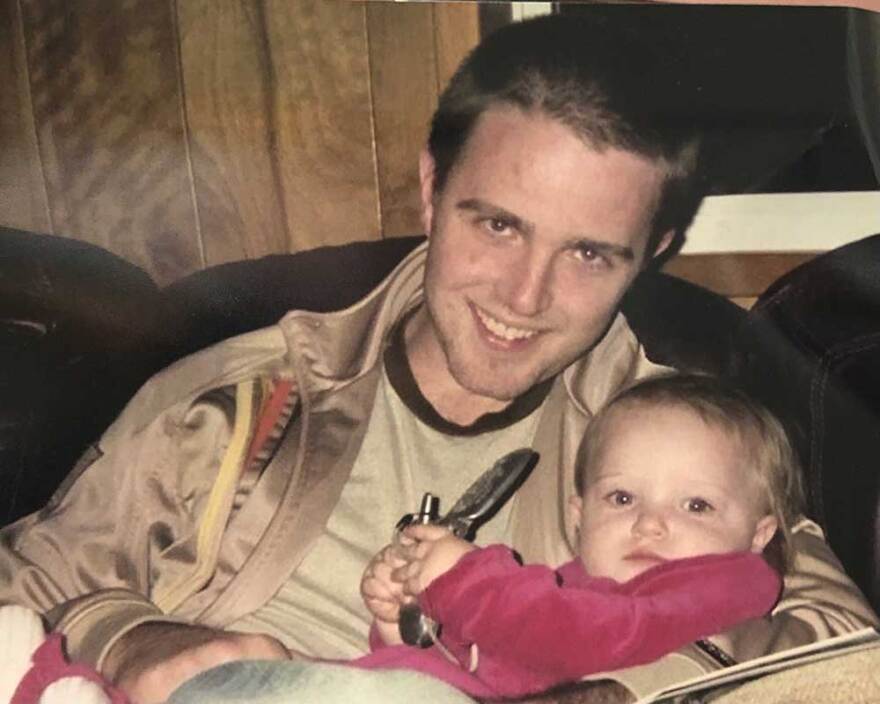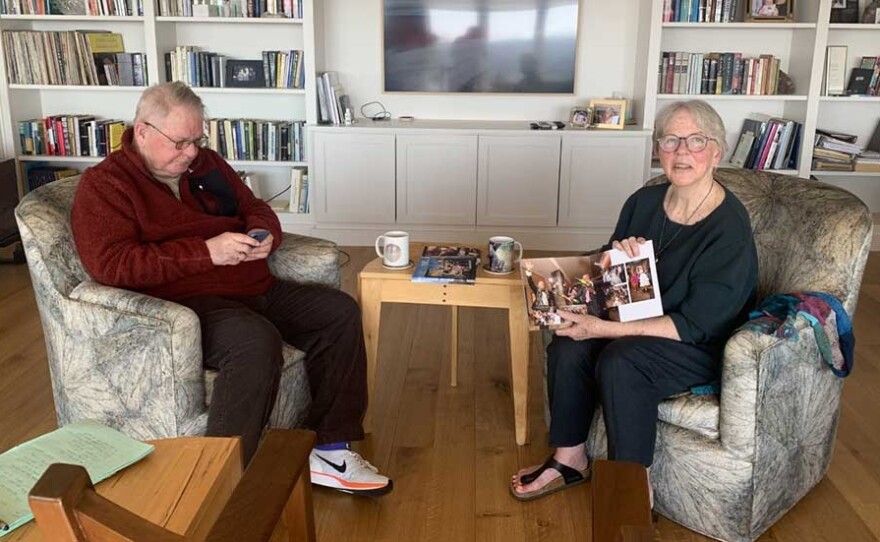Kennedy Stonum had just turned 17, gotten her driver's license, and was looking forward to a life full of possibilities when her life was tragically cut short on Feb. 11, 2022.
Stonum passed away from severe complications of COVID-19. She had no underlying health conditions but she was not vaccinated.
“It was absolutely the worst that could happen,” said her grandmother, Marilyn Shea-Stonum, a retired federal bankruptcy court judge and Bratenahl resident.
The Stonums had strongly encouraged Kennedy, who lived in Southern California, to get the COVID-19 vaccine. Ultimately, she decided not to.
“I pleaded with her, actually. Probably not the right tone to take, but what do you do? And she would say politely, I’ll think about it. But her circle of friends, by and large, were not vaccinated,” Shea-Stonum said.

In their spacious, sunny living room on a recent afternoon, Shea-Stonum and her husband Gary flipped through photo albums of Kennedy, who was their only grandchild.
In one picture, she's dancing fearlessly at her dad's wedding. In others, she's adventurous outdoors, riding bikes and kayaking with her grandpa.
“Kennedy was exuberant,” Shea-Stonum said.

The family laments they didn't push harder for Kennedy to get vaccinated
Kennedy wasn't feeling well and went to the emergency room at the end of January, Stonum said. She tested positive for COVID-19 and was hospitalized, as her body was in distress, she said.
She then developed what doctors believe was hemophagocytic lymphohistiocytosis, also known as HLH, a rare immune system disease that can come on secondary to a viral infection like COVID-19, she said.
The disease attacked her immune system, and she also suffered several infections, Kennedy’s father, Lee Stonum, said.
“They did a CT scan early in the morning on the 11th and identified a major brain bleed, and told us she wouldn’t survive that, and we had to take her off life support on the 11th shortly after 8 a.m. She passed basically immediately after she was taken off,” Stonum said.
A graduate of Cleveland Heights High School, Stonum now works as a defense attorney in Southern California.
Stonum and his parents hope their tragic story reaches other teenagers and parents who are on the fence about getting the COVID-19 vaccine.
“I just want to say – hey, kids, don’t do this to your grandparents,” Shea-Stonum said.
“We just want it so nobody has to feel this way. Nobody else,” Gary Stonum added.
Stonum in California teared up as he talked about his daughter. She had many friends, played soccer for most of her life, and was involved in a church group, he said.
“One of the toughest things about this is just, sort of, the ‘what if’s,’ because her life could have gone a million different directions and we'll never get to know which one it was," Stonum said. “She was really smart, especially from sort of a social standpoint. She understood people and understood how to talk to people.”

Stonum had urged his daughter to get the COVID-19 vaccine, but she had concerns about possible long-term effects. She had no underlying health conditions and thought she would have a mild case if she caught the virus, he added.
The vaccines have been deemed safe and effective for children age 5 and up, according to the Food and Drug Administration.
Stonum, too, had assumed she would not have a severe case but wanted her to get the vaccine just to be safe, he said.
"I had seen stories like this where seemingly healthy kids had had drastic and tragic consequences from the virus. I certainly never thought that that would be me," Stonum said.
Stonum understands teenagers might not think it’s necessary to get the shot, but looking back now, he said parents need to insist their kids get vaccinated.
“That’s the first job of a parent is to protect their child and to keep them safe. That's what the vaccine is doing, it's keeping your kids safe,” Stonum said.
“If there were good reasons not to get the vaccine, then you can start talking about ‘how rare serious complications from COVID are’ and you can start weighing those things. But there aren’t good reasons not to get the vaccine. There just aren’t," he added.
Although the risk of death is lower for teenagers doctors still recommend they get vaccinated
Compared to other age groups, children under 18 are the most under-vaccinated across the country, according to data from the Centers for Disease Control and Prevention (CDC). They also report the lowest death rates. Still, at least 1,000 children in the U.S. have died from COVID-19 or serious complications it can cause, according to the CDC.
Pediatric COVID hospitalizations increased during the recent omicron surge.

The American Academy of Pediatrics recommends adolescents get vaccinated to lower their risk of severe illness and death.
Doctors are particularly concerned about multi-system inflammatory syndrome in children, or MIS-C, a disease that can develop in children several weeks after a COVID-19 infection and is occasionally life-threatening.
The Bratenahl couple visited their son and granddaughter in California several times a year. The last time they saw Kennedy in person was over the Christmas holiday in 2021.
Kennedy lived with her mom – Stonum’s ex-wife – about a half-hour away from her dad, but she visited him and her stepmom frequently while they worked from home during the pandemic.
“I’m really grateful for those times and memories, and that we had a chance to really reconnect and bond, and know that we loved one another; know that we were always going to be there for one another,” Stonum said.
A celebration of life for Kennedy will take place in California in the coming weeks, Stonum said. The family hopes to plant a tree in Kennedy’s memory at a park near her house in California.
Marilyn Shea-Stonum is a former member of WKSU's Community Advisory Council.
Copyright 2022 WCPN. To see more, visit WCPN.





